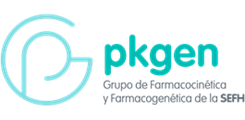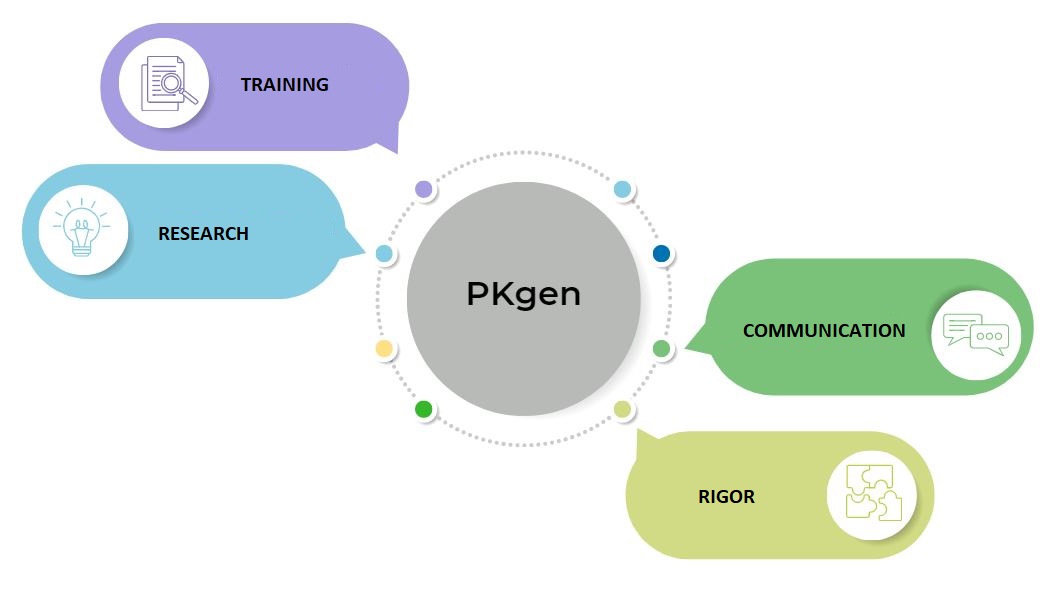
The Spanish pharmacokinetics (PK) and pharmacogenetics (PG) workgroup, PKgen, was established in May 2008. Its primary mission is to promote the development of PK and PG units in the pharmacy departments of Spanish hospitals.
Pharmacokinetics
Clinical PK may be defined as the use of pharmacokinetic (PK) and pharmacodynamic (PD) principles to ensure the drug therapies administered to patients are safe and effective. The ultimate purpose is to adjust each patient’s dosage based on the observed plasma concentration of the drug in question and the patient’s physiopathological characteristics. PK monitoring comprises two stages: the determination of the drug’s plasma concentration on the one hand, and the preparation of a PK report with an interpretation of the results. The reliability of this strategy depends on the quality of the information obtained and on an appropriate interpretation of the PK/PD criteria.
Pharmacogenetics
PG studies the influence of variations in the DNA sequence on the safety and efficacy of a given pharmacological treatment. The primary goal is to identify and characterize genetic polymorphisms and their correlation with clinical results. It is essential to quantify how much of the variability in the exposure to a drug can be attributable to PG and regard PG as a complement to PK and never as the sole criterion to guide dose adjustments.

Modern society demands high-quality healthcare. To meet such demands, health professionals, among them pharmacists, must apply their knowledge with maximum scientific rigor and with a great sense of responsibility. The pKgen workgroup would therefore like to assist pharmacists in being up to the task and using rigorous criteria grounded in the available scientific evidence.




